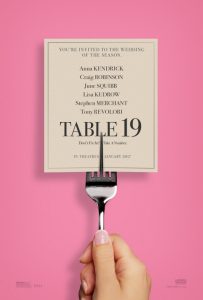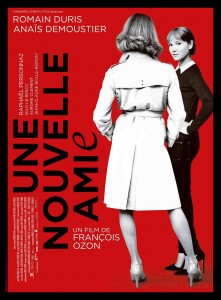Fifty-five years after Rosa Parks refused to give up her seat to a white man on a bus, and forty-five years after the Civil Rights March on Washington, race still remains a divisive issue across the world. In Australia alone, asylum seeker issues continue to dominate the media, as well as other race related issues. The Help comes along at a time where racism is far from a distant memory.
Fresh from graduating at Ole Miss, Skeeter Phelan (Emma Stone) returns to her hometown of Jackson, Mississippi. It is the early 1960s, the civil rights era is still young, and segregation is in full effect. Skeeter enlists Aibileen (Viola Davis) – an African American maid – to help answer a “Dear Abby” style column with her new job at the Jackson Journal. Developing an interest in the point of view of the help, Skeeter starts to interview Aibileen about being a maid. Gaining trepidatious interest with a New York publisher, Skeeter manages to also interview Minny (Octavia Spencer) – a sassy maid to Hilly Holbrook (Bryce Dallas Howard) – and gain more insights into the racially prejudiced and fearful town of Jackson.
The Help is both heart-warmingly funny and deeply emotional. At 146 minutes, it is not a second too long. The only flaw surrounds the involvement of Skeeter’s male suitor. The inclusion feels awkward, unnecessary and would have benefited without it. Tate Taylor adapted Kathryn Stockett’s novel into a screenplay, which he also directed. Taylor has a fine talent for hitting the emotional punches without manipulating any false feeling, or exploiting the hardships of the generations of women, whom this film is about.

Emma Stone leads the cast as Skeeter. Her subtle talents are on full display as the inquisitive, yearning and head strong Southern girl. She is a woman of independent means, who is chasing a career, not a man. Stone’s beauty is downplayed with an unstylish hairstyle (especially in comparison to the beehives featured on all the other women of her age), but she still manages to make a strong presence and holds the film together.
Viola Davis and Octavia Spencer are the heart and soul of the film. Spencer brings the humour and sass to Minny without missing a beat or battering an eyelid. Her delivery is pitch perfect and she manages to effortlessly oscillate between hysterically funny and deeply moving. Davis brings the emotional charge to Aibileen even in the briefest of glances. Every movement in her body shows the toll that being a maid has taken. Her final scene is overwhelmingly moving, and this is done from just a few words. Both women have given career defining performances and deserve some Academy attention!
Hilly Holbrock is played with true scorn and bitterness by Bryce Dallas Howard. Her character introduces a legislative initiative to force all white families to install separate bathrooms for their maids.  Through fear mongering, she tries to convince her fellow housewife friends that this is completely necessary due to diseases that African Americans carry. Like the other women in the film Howard gives a career defining performance. Howard does not attempt to gain sympathy or rationalise Hilly’s inherent racist behaviour. Hilly is a horribly mean, cruel and manipulative woman, and Howard demonstrates this wonderfully.
Through fear mongering, she tries to convince her fellow housewife friends that this is completely necessary due to diseases that African Americans carry. Like the other women in the film Howard gives a career defining performance. Howard does not attempt to gain sympathy or rationalise Hilly’s inherent racist behaviour. Hilly is a horribly mean, cruel and manipulative woman, and Howard demonstrates this wonderfully.
With a string of recent film appearances under her belt, Jessica Chastain, a formerly unheard of actress, now adds another brilliant performance to her resume as Celia Foote, Minny’s new bubbly, kind and colour-blind boss. Chastain has vivacious energy and lights up the screen with her indomitable presence.
Supporting roles are filled by prolific actors such as Academy Award nominee Cicely Tyson, Academy Award winner Sissy Spacek and four-time Emmy Award winner Allison Janney. Their roles may be limited, but all make their presence loudly felt. Academy Award winner Mary Steenburgen also gets a couple of quick scenes, but still makes a mark.
Courage through action speaks volumes. Courage through words proves as equally effective. Encompassing the heaviness and emotional weight of the past, The Help shines a light onto the lives of African American maids. Criticisms have cast the film as white centric, whereby a white protagonist acts as the white knight on a horse. They also consider the film to be lecturing or ranting. Similar criticisms were made with The Blind Side’s release. Frankly these comments miss the point of the films. Personally, I see this film as a remembrance of the hardships of generations of women whose stories are seldom in a Hollywood mainstream motion picture.
Important, relevant, historical and poignant, The Help is still an enjoyable tearjerker of a film. It may not have a complex or unique narrative form, but it does feature a simplistic and moving score from Thomas Newman, terrific performances from a leading female cast, sensitive storytelling and a weighty subject matter. The Help is one of the best films I have seen so far this year, and I am sure I will not forget it any time soon.
Written by James Madden.
The Help is on general release through Touchstone Pictures.
[youtube=http://www.youtube.com/watch?v=WbuKgzgeUIU]





3 Comments